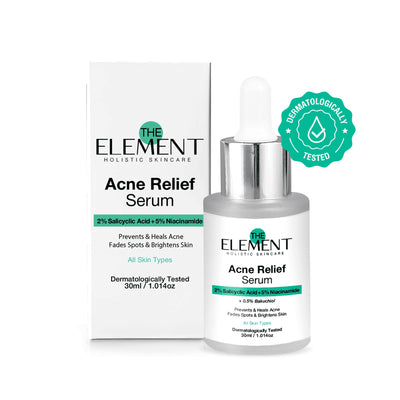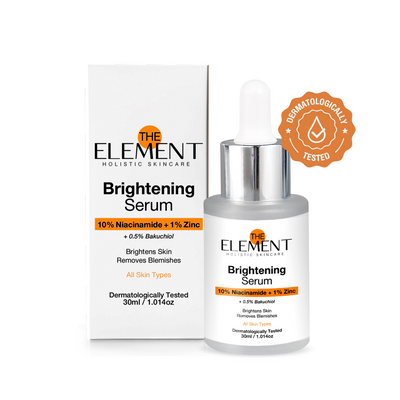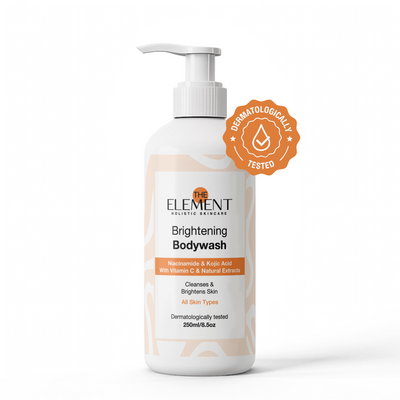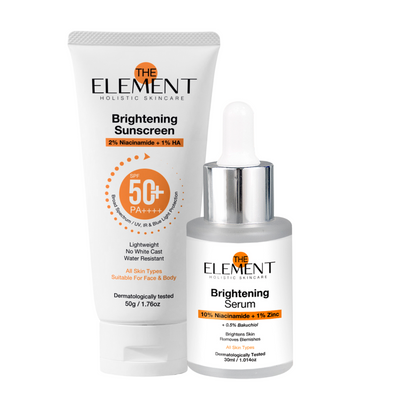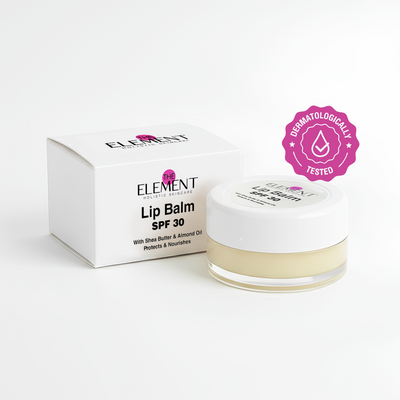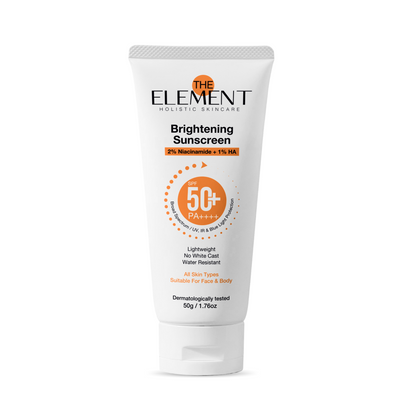Dermatologist's Guide to Choosing the Best Sunblock for Oily Skin

Why Sunblock for Oily Skin Matters
Finding the right sunblock for oily skin can feel like a daunting task. Many sunscreens leave a greasy residue, clog pores, or worsen shine, making it challenging for those with oily or acne-prone skin to stay protected from harmful UV rays. However, skipping sunscreen is not an option, as it’s essential for preventing premature aging, sunburn, and even skin cancer. In this guide, we’ll explore the best sunblock options for oily skin, how to choose the right one, and expert tips to keep your skin healthy and shine-free.
Benefits of Using Sunblock for Oily Skin
1. Protection Against UV Damage
Sunblock is your skin’s first line of defense against harmful UVA and UVB rays. These rays can cause sunburn, hyperpigmentation, and even skin cancer. For oily skin, lightweight, non-comedogenic sunscreens ensure protection without clogging pores.
2. Prevention of Premature Aging
Excessive sun exposure accelerates the breakdown of collagen, leading to wrinkles, fine lines, and sagging skin. A good sunscreen with broad-spectrum protection helps maintain youthful skin.
3. Oil Control and Matte Finish
Modern sunscreens for oily skin are formulated with mattifying ingredients like silica or niacinamide, which help control excess sebum and reduce shine throughout the day.
4. Improved Skin Texture
Using the right sunblock can prevent acne breakouts caused by clogged pores, leaving your skin smoother and healthier.
Challenges of Finding the Right Sunblock for Oily Skin
1. Greasy Formulas
Many traditional sunscreens have thick, greasy textures that can exacerbate oiliness and leave a shiny finish.
2. Clogged Pores
Heavy formulations often clog pores, leading to blackheads, whiteheads, and acne.
3. White Cast
Some sunscreens, especially mineral-based ones, leave a white residue on the skin, which can be particularly noticeable on darker skin tones.
4. Sensitivity to Ingredients
Oily skin is often prone to sensitivity, and certain sunscreen ingredients like fragrances or alcohol can cause irritation or breakouts.
How to Choose the Best Sunblock for Oily Skin
When selecting a sunscreen for oily skin, look for the following features:
1. Non-Comedogenic Formulas
Choose sunscreens labeled as "non-comedogenic," meaning they won’t clog pores or cause breakouts.
2. Lightweight and Gel-Based Textures
Opt for lightweight, gel-based, or water-based sunscreens that absorb quickly and don’t leave a greasy residue.
3. Broad-Spectrum Protection
Ensure the sunscreen offers broad-spectrum protection against both UVA and UVB rays. Look for SPF 30 or higher for daily use.
4. Mattifying Ingredients
Ingredients like silica, niacinamide, or zinc oxide help control oil production and provide a matte finish.
5. Mineral vs. Chemical Sunscreens
- Mineral Sunscreens: Contain zinc oxide or titanium dioxide, which sit on the skin’s surface and reflect UV rays. They are ideal for sensitive skin but may leave a white cast.
- Chemical Sunscreens: Absorb UV rays and convert them into heat. They are lightweight and blend seamlessly but may irritate sensitive skin.
Dr. Jane Smith, a board-certified dermatologist, emphasizes, “Sunscreen is non-negotiable, regardless of your skin type. For oily skin, look for lightweight, non-comedogenic options with mattifying properties. Ingredients like niacinamide and zinc oxide can help control oil while providing excellent sun protection.”
Why Sunscreens from "The Element" are best for Oily Skin
1. Lightweight and Non-Greasy Formulation
"The Element" sunscreens are crafted with a lightweight, water-based formula that absorbs quickly into the skin without leaving a greasy residue. This makes them ideal for oily and acne-prone skin types.
2. Broad-Spectrum Protection
With SPF 50+ and PA+++, these sunscreens provide broad-spectrum protection against harmful UVA and UVB rays, preventing sunburn, hyperpigmentation, and premature aging.
3. Oil Control and Matte Finish
Key ingredients like niacinamide (2%) help regulate sebum production, reducing excess oil and shine throughout the day. This ensures a matte finish, even in humid conditions.
4. Hydration Without Clogging Pores
The inclusion of hyaluronic acid (1%) ensures that your skin stays hydrated without feeling heavy or greasy. This ingredient locks in moisture while maintaining a lightweight feel, making it perfect for oily skin.
5. Soothing and Brightening Properties
"The Element" sunscreens are enriched with green tea extract, which soothes irritated skin and reduces redness. Additionally, niacinamide brightens the skin tone, leaving your complexion radiant and even.
6. No White Cast
Unlike many mineral sunscreens, "The Element" sunscreens are formulated to blend seamlessly into the skin, leaving no white cast. This makes them suitable for all skin tones.
Key Ingredients in "The Element" Sunscreens and Their Benefits
1. Niacinamide (2%)
- Regulates sebum production, reducing oiliness.
- Brightens skin tone and minimizes the appearance of pores.
- Helps calm inflammation and redness, making it ideal for acne-prone skin.
2. Hyaluronic Acid (1%)
- Provides lightweight hydration without clogging pores.
- Helps maintain the skin’s natural moisture barrier.
- Leaves the skin feeling soft and plump.
3. Green Tea Extract
- Rich in antioxidants that protect the skin from environmental damage.
- Soothes irritation and reduces redness.
- Helps control oil production, keeping the skin balanced.
4. Water-Based Formula
- Ensures quick absorption and a non-greasy finish.
- Lightweight texture makes it comfortable for daily use.
5. Oxybenzone-Free
- Free from harmful chemicals that can irritate sensitive or oily skin.
- Safe for long-term use and suitable for all skin types.
Why "The Element" Sunscreens Are Perfect for Oily Skin
Sunscreens from "The Element" are specifically formulated to cater to the needs of oily and acne-prone skin. Their combination of powerful ingredients like niacinamide, hyaluronic acid, and green tea extract ensures effective sun protection while addressing common concerns like excess oil, clogged pores, and shine.
Dr. Jane Smith, a board-certified dermatologist, explains, “Sunscreens with niacinamide and hyaluronic acid are excellent for oily skin. They provide hydration, control oil production, and protect the skin from UV damage without clogging pores.”
Expert Tips for Using Sunblock on Oily Skin
1. Apply Sunscreen as the Last Step in Your Skincare Routine
After cleansing, toning, and moisturizing, apply sunscreen to ensure maximum protection.
2. Don’t Skip Moisturizer
Even oily skin needs hydration. Use a lightweight, oil-free moisturizer before applying sunscreen.
3. Reapply Every Two Hours
Reapply sunscreen every two hours, especially if you’re outdoors or sweating.
4. Use a Powder Sunscreen for Touch-Ups
Powder sunscreens are great for reapplication throughout the day without disturbing your makeup.
5. Double Cleanse at Night
Remove sunscreen thoroughly with an oil-based cleanser followed by a water-based cleanser to prevent clogged pores.
Conclusion: Protect Your Skin Without the Shine
Choosing the best sunblock for oily skin doesn’t have to be overwhelming. By understanding your skin’s needs and selecting the right products, you can enjoy effective sun protection without compromising on comfort or appearance. Remember, sunscreen is a daily essential, not just a summer accessory.
FAQs About Sunblock for Oily Skin
1. What type of sunscreen is best for oily skin?
Look for lightweight, non-comedogenic, and gel-based sunscreens with mattifying properties.
2. Can sunscreen make oily skin worse?
Using the wrong sunscreen can clog pores and increase shine. Choose oil-free, non-greasy formulas to avoid this.
3. How often should I reapply sunscreen?
Reapply every two hours, especially if you’re outdoors, sweating, or swimming.
4. Is mineral sunscreen better for oily skin?
Mineral sunscreens are great for sensitive skin but may leave a white cast. Choose a lightweight formula to suit oily skin.
5. Can I skip moisturizer if I have oily skin?
No, even oily skin needs hydration. Use a lightweight, oil-free moisturizer before applying sunscreen.

